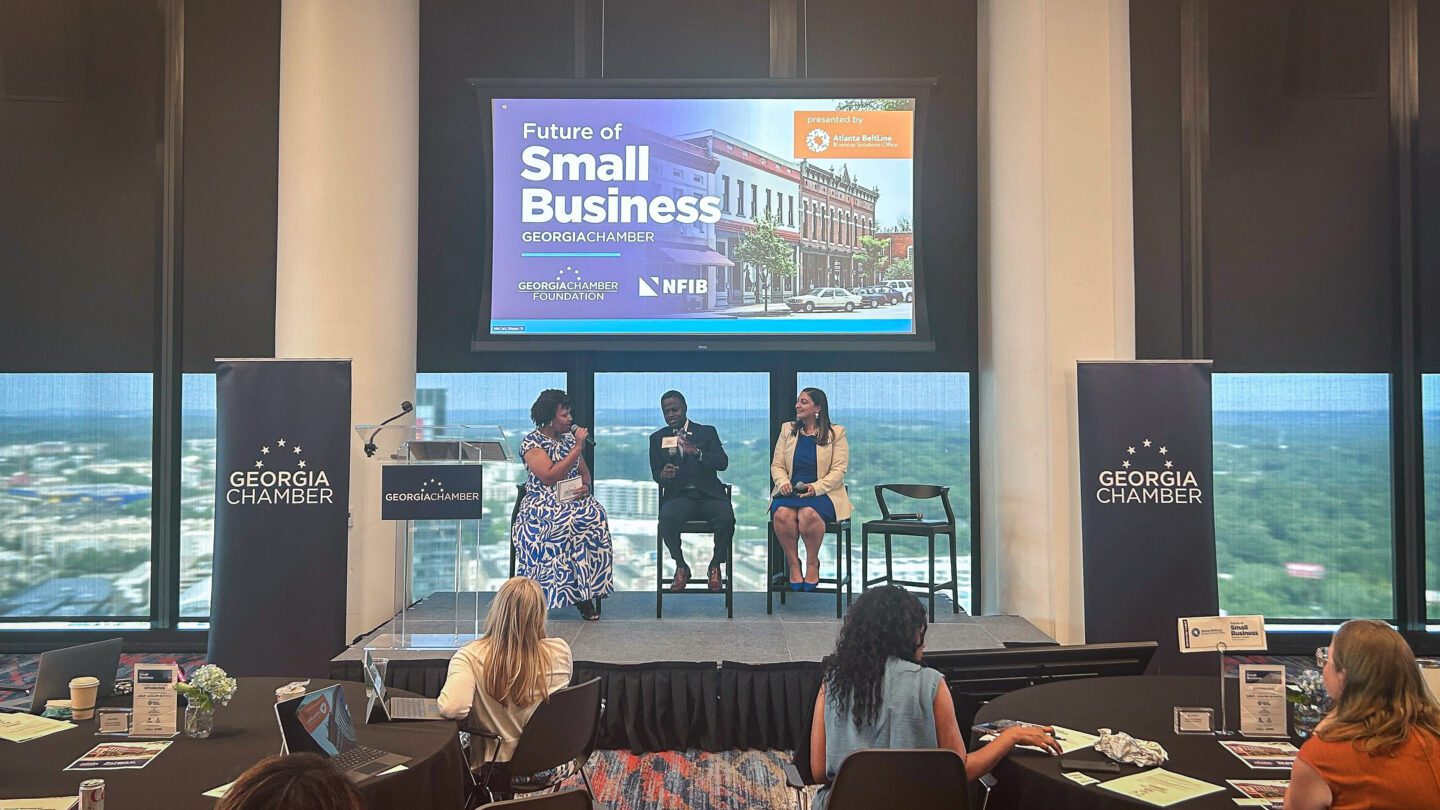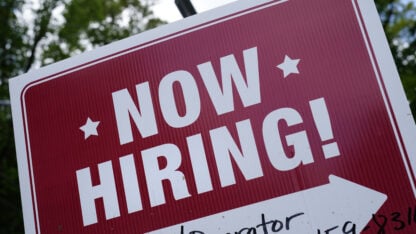In between panels and presentations at the Georgia Chamber of Commerce’s inaugural “Future of Small Business” summit, attendees discussed the trends impacting business owners across the state, as well as their concerns about their futures as workforce and talent development remain top issues.
According to the US Small Business Administration, small businesses in Georgia employ over 1.7 million people.
“The larger companies in Georgia, we’ve surveyed, say workforce is an issue now, but 25 years from now, it’s gonna be technology,” said Chris Clark, the CEO and president of the Georgia Chamber.
“Small businesses said the workforce is an issue now and it’s still gonna be an issue 25 years from now.”
Earlier this year, the Chamber surveyed Georgia business executives, who also echoed that maintaining proper staffing and recruiting skilled workers has been an obstacle for some time.
Another major challenge, Clark adds, is the funding gap between white-owned businesses and businesses run by people of color, with the former having more access to banking systems and resources.









